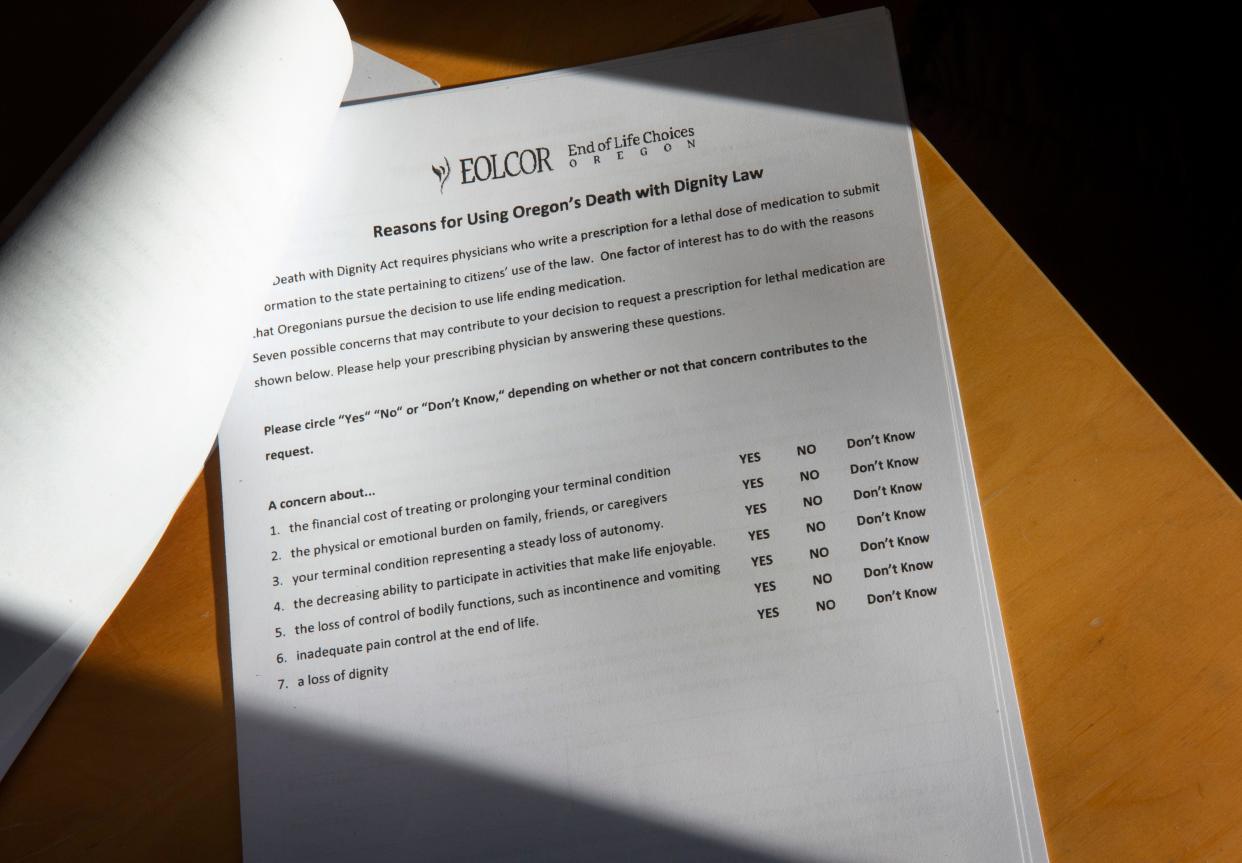Prescriptions for lethal doses of medication in Oregon increased by nearly 30% in 2023

Prescriptions for lethal doses of medication in Oregon increased by nearly 30% in 2023, the same year an amendment to the state's Death with Dignity Act removed the in-state residency requirement for patients, according to an Oregon Health Authority report released Wednesday.
There were 560 prescriptions for lethal medication doses in Oregon in 2023, up from 433 prescriptions the year before.
There were 367 deaths reported in Oregon last year from ingesting lethal doses of medication prescribed under the Death with Dignity Act.
OHA attributed the difference in prescriptions and deaths due to: Some out-of-state deaths are not reported; some people die before taking the lethal dose; and some 5% outlive their six-month prognosis and could end up not taking it.
The report speculated the amendment that patients are no longer required to be residents to receive a lethal dose prescription contributed to the rise in prescriptions. The number of prescriptions made to non-Oregon residents or deaths from ingestion is unknown.
OHA has updated physician compliance forms to include patient residency status in 2024 to help them understand the how the amended law has impacted out-of-state access.
What is the Death with Dignity Act?
The Death with Dignity Act (DWDA) was first established in Oregon in 1997.
It allows terminally ill patients to end their lives through self-administration of a lethal medication.
A patient must verbalize their request two times, each request being at least 15 days apart, and make a written request in the presence of two witnesses before a physician can prescribe lethal medication.
The law was passed by a voter ballot measure in 1994, but an injunction delayed implementation until 1997.
An exemption went into effect in 2020 waiving the 15-day wait period for people with less than 15 days to live.
Who is eligible to receive a lethal dose prescription?
To receive a prescription for lethal medication a patient must be:
An adult over the age of 18.
Capable and competent enough to make health care decisions for themselves.
And, diagnosed with a terminal illness that will lead to death within six months.
What happens to unused lethal dose medication?
Patients prescribed lethal medication can take it at any time, and there is no time by which they must take the medication.
If a patient decides not to take the dose or is unable to take it, the medication does not have to be returned to the prescriber.
OHA encourages patients, families and caregivers to properly dispose of unused lethal medications by taking them to community drug collection sites or at prescription drug take back day events held twice a year.
Sydney Wyatt covers healthcare inequities in the Mid-Willamette Valley for the Statesman Journal. Send comments, questions, and tips to her at SWyatt@gannett.com, (503) 399-6613, or on Twitter @sydney_elise44
The Statesman Journal’s coverage of healthcare inequities is funded in part by the M.J. Murdock Charitable Trust, which seeks to strengthen the cultural, social, educational, and spiritual base of the Pacific Northwest through capacity-building investments in the nonprofit sector.
This article originally appeared on Salem Statesman Journal: Oregon lethal medication prescriptions increased nearly 30% in 2023
